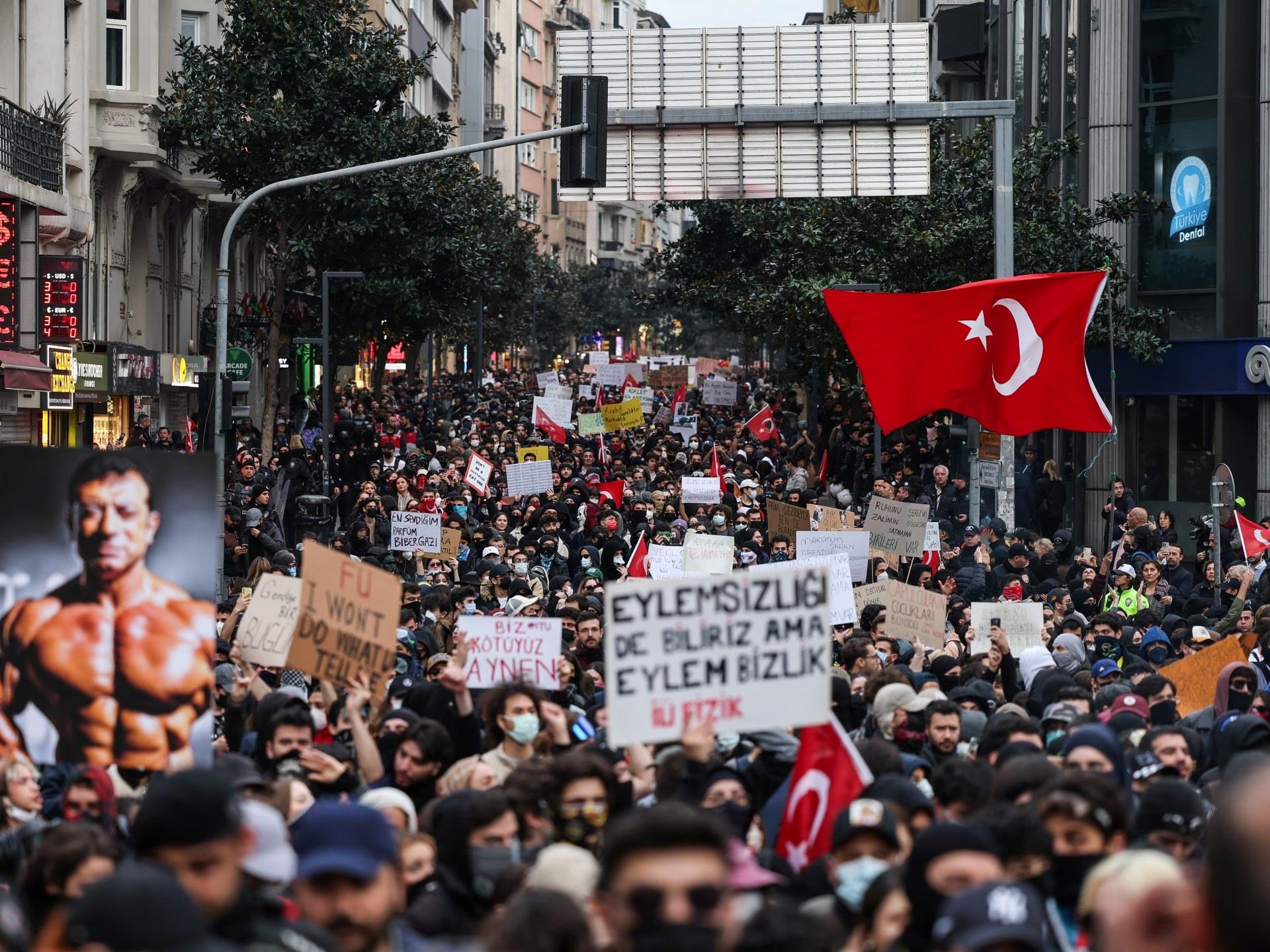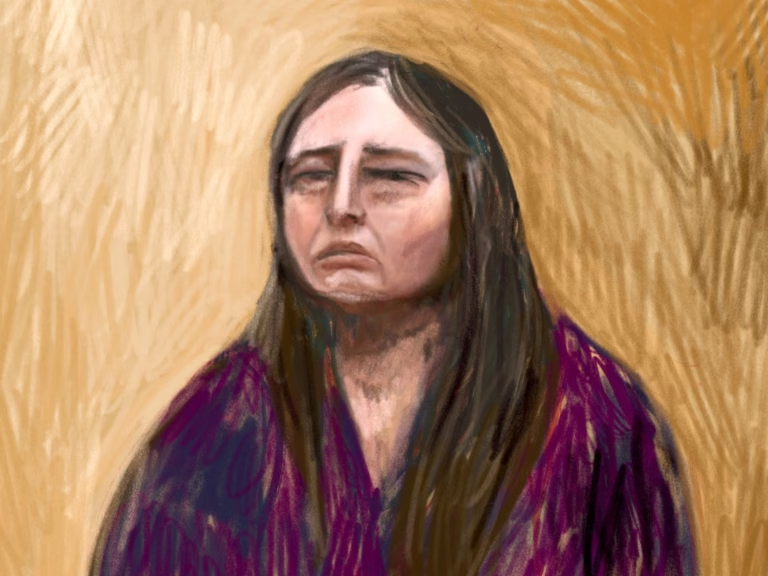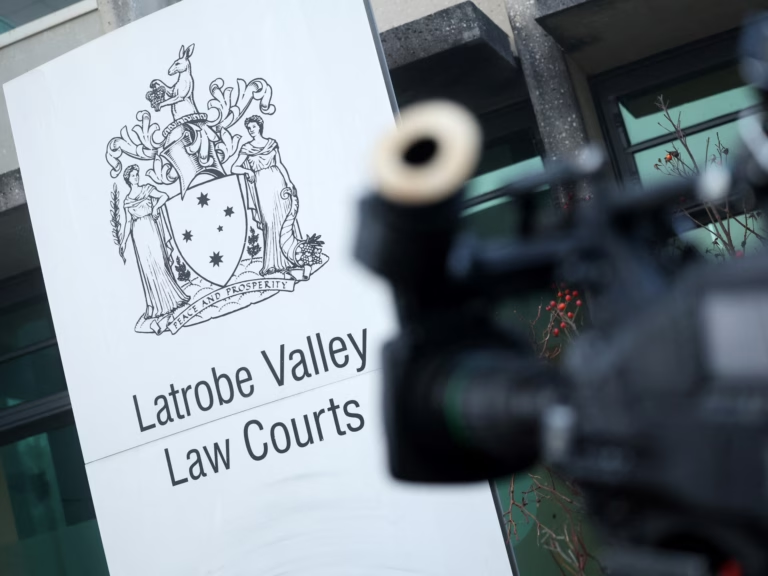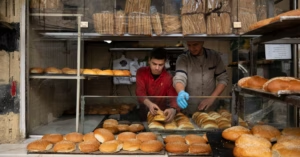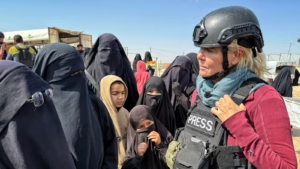The popular mayor, who is the chosen candidate by Turkey’s main opposition party for the upcoming presidential election, was taken into custody on March 19. Daily protests have since erupted, with demonstrators now demanding the resignation of the government.
Imamoglu’s supporters see his detention as President Recep Tayyip Erdogan’s strategy to further tighten his grip on power.
Conversely, the government and its backers argue that the judiciary is simply enforcing the law.
Cinar Ileri, a 28-year-old neutral observer participating in the protests, commented that regardless of his personal political stance, he believes the legal treatment Imamoglu received is more political than judicial.
Allegations of corruption have been rampant across Turkey’s political spectrum, a subject of a parliamentary report that pointed towards insufficient checks and balances to combat it. Critics suspect the government’s focus on opposition figures undermines its commitment to justice, hinting at an ulterior motive to reshape the political landscape.
Hilal Kaplan, a journalist close to the ruling Justice and Development Party (AK Party), disputes these claims, pointing out that the case against Imamoglu was filed by members of his own party, the Republican People’s Party (CHP).
Kaplan dismissed the notion that Imamoglu’s arrest is politically motivated as “a blatant lie”.
Dwindling Protest Strength
Imamoglu, a two-time elected mayor of Istanbul, is widely recognized as the main contender to Erdogan, who has been in power since 2003.
Similar to Imamoglu, Erdogan served as a popular Istanbul mayor in the 1990s before serving time in prison in 1999.
The day before his detainment, Imamoglu’s university degree was invalidated by Istanbul University over alleged false acquisition, which is required to run for presidency.
Although he participates in demonstrations to witness public sentiment, Ileri feels a decline in the protests’ momentum.
Despite being a holy month marked by Ramadan, protests have continued, yet there is little indication of widespread participation in nightly gatherings.
In Anit Park, many residents appear indifferent to the protests, not intending to join in.
For Ali, a 22-year-old student, the rallies have become an almost nightly commitment, driven by a broader discontent with the AK Party’s policies rather than a specific support for Imamoglu.
Turkish authorities have detained over 1,100 individuals and sought the blocking of several social media accounts during the protests. Erdogan has condemned the protests as a “movement of violence”, urging the CHP to cease “provoking” public unrest.
Ali remains undeterred, advocating for change through protest and expressing the collective desire among youth, particularly Gen Z, to fight for their rights and freedoms.
Where is the Justice?
Residents in opposition-leaning neighborhoods pound pots and pans from their windows nightly to protest Imamoglu’s detainment. Furkan, a gym trainer, expresses frustration, asking, “Where is the justice? Where is the democracy?” However, he remains doubting about the potential for this to ignite a larger sustained antigovernment movement.
On the other side of the Bosphorus in Uskudar, life continues as normal without any protests. Abdullah, who has friends not participating in the protests, denounces Imamoglu, citing his alleged involvement in corruption and financing terrorism.
Abdullah predicts a decline in protest attendance, particularly as Ramadan holidays conclude and people return to their hometowns, believing that public attention and support for Imamoglu will wane.
Conversely, in Kadikoy, protests conclude with participants retreating to cafes and bars. Mesut, who attends the protests, describes them as mainly unorganized gatherings of young, disillusioned people lacking a clear vision or organization. Despite the anger, he doesn’t see a cohesive strategy or plan for this activist movement.



